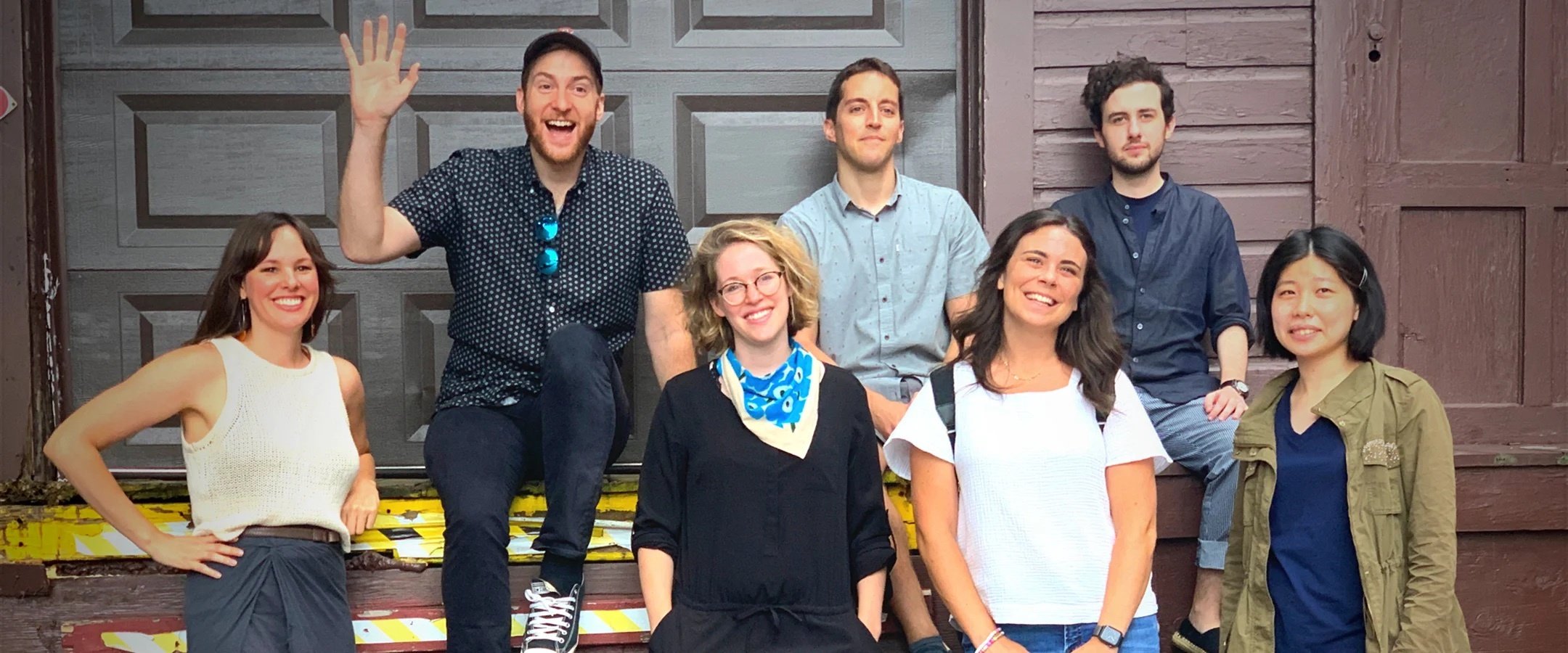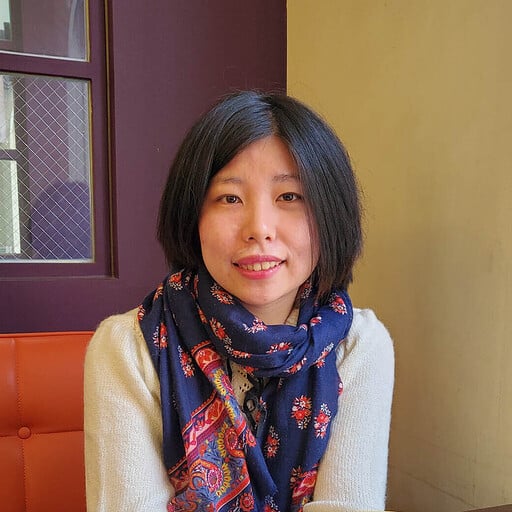
By
Karam Yoo
When I accepted my offer for a UX design internship at the Blink Boston studio, I was excited and nervous. I knew the work I would be doing, but I didn’t know whom I’d be working with or how we would collaborate.
The biggest takeaway from my internship at Blink is that design is a collaborative process. My time at Blink opened my eyes to how people fit into the equation of design — in this case, not as users but as people who work together to create solutions.
Here are some of my insights about the culture at Blink and how to navigate the workplace to build connections with team members, clients, and coworkers across studios.
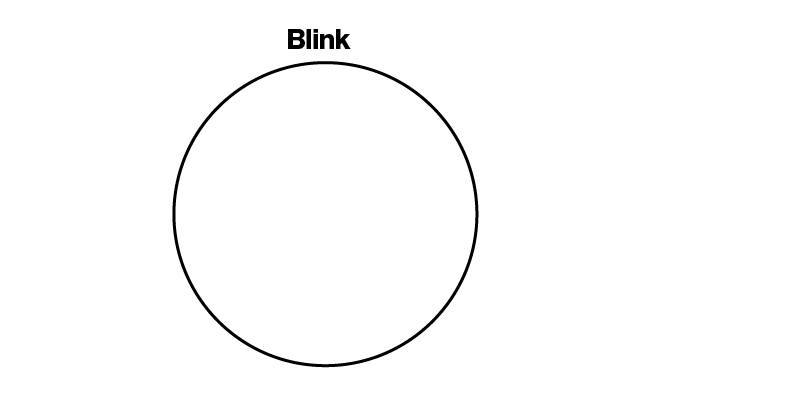
Teamwork makes the dream work
For the bulk of my internship, I worked on the pro bono project with Rescuing Leftover Cuisine (RLC), a nonprofit organization whose mission is to “rescue” leftover food and deliver it to people in need.
My team for the internship project consisted of eight people, including experts in research, design, and project management. Working on a project team, I realized the importance of regularly syncing with team members. We had regular standup meetings where we could get up to date on the status of the project work. Outside of these meetings, I reached out to my manager, Mike, whenever I had questions or needed a second opinion on the design.
Because this project had a research and design component, aligning these two disciplines was critical. To enable collaboration between research and design — aside from our team meetings — I often touched base with a fellow intern and researcher, Carolyn. We ensured that the research addressed the questions that the design needed to be answered and that the design reflected research findings.
Blinkers outside of our project team and the Boston studio also contributed their perspectives to the internship project with visual sketches, visual design explorations, and concept cards, which are used to ideate possible design features. I even had the opportunity to receive feedback from Blinkers on my work during a design charrette. This dedicated guidance and feedback helped me refine my design by encouraging me to reexamine previously overlooked areas.
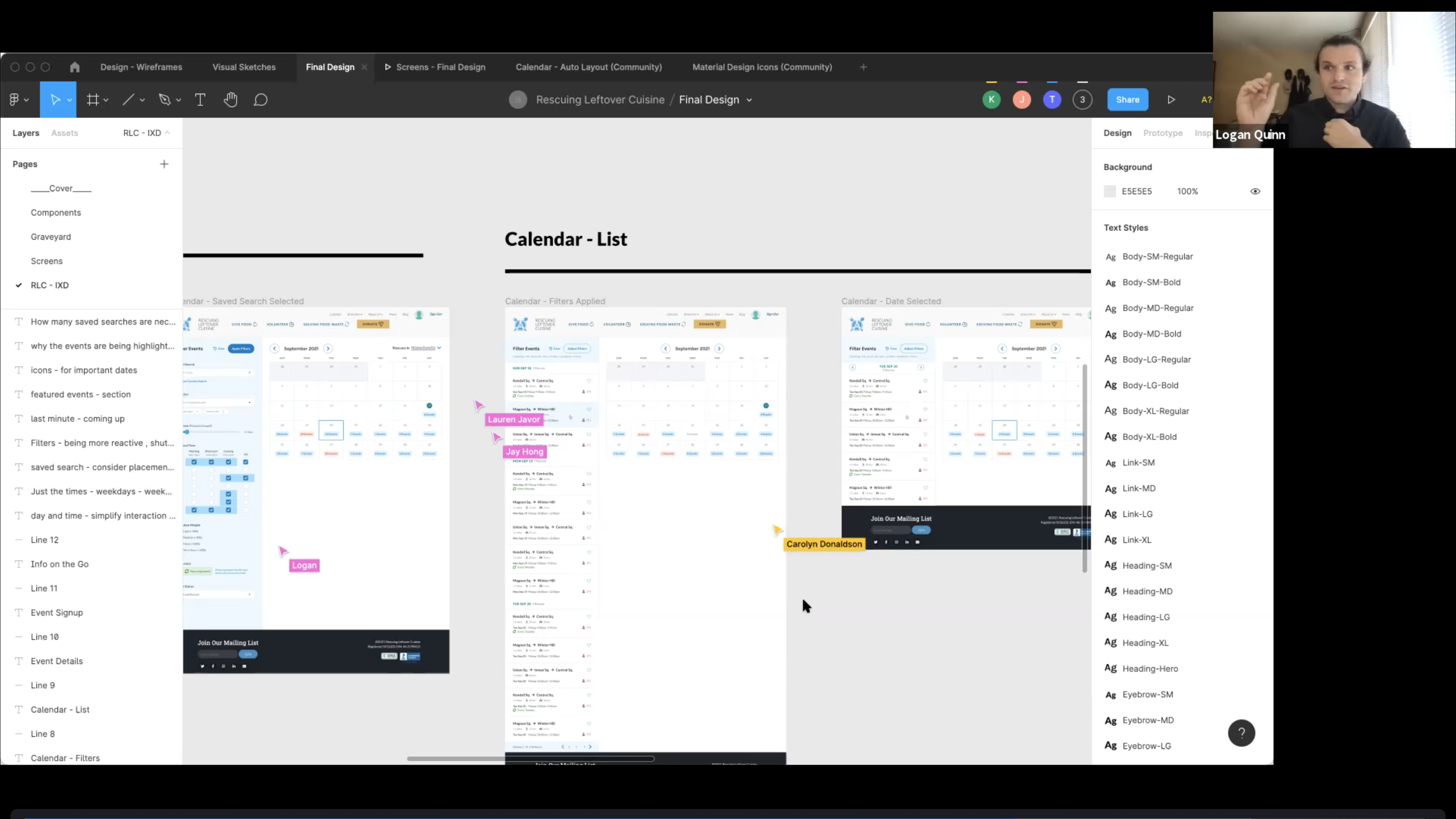
The client is your dance partner
In the initial phases of the internship project, we determined that RLC wanted to be a “better dance partner” for its volunteers. After our initial work with this client, we recognized that, at Blink, the client is our dance partner. Coordination and collaboration between a UX design firm and client are critical for a successful design project, just as coordination and collaboration between two dance partners are critical for a successful dance routine.
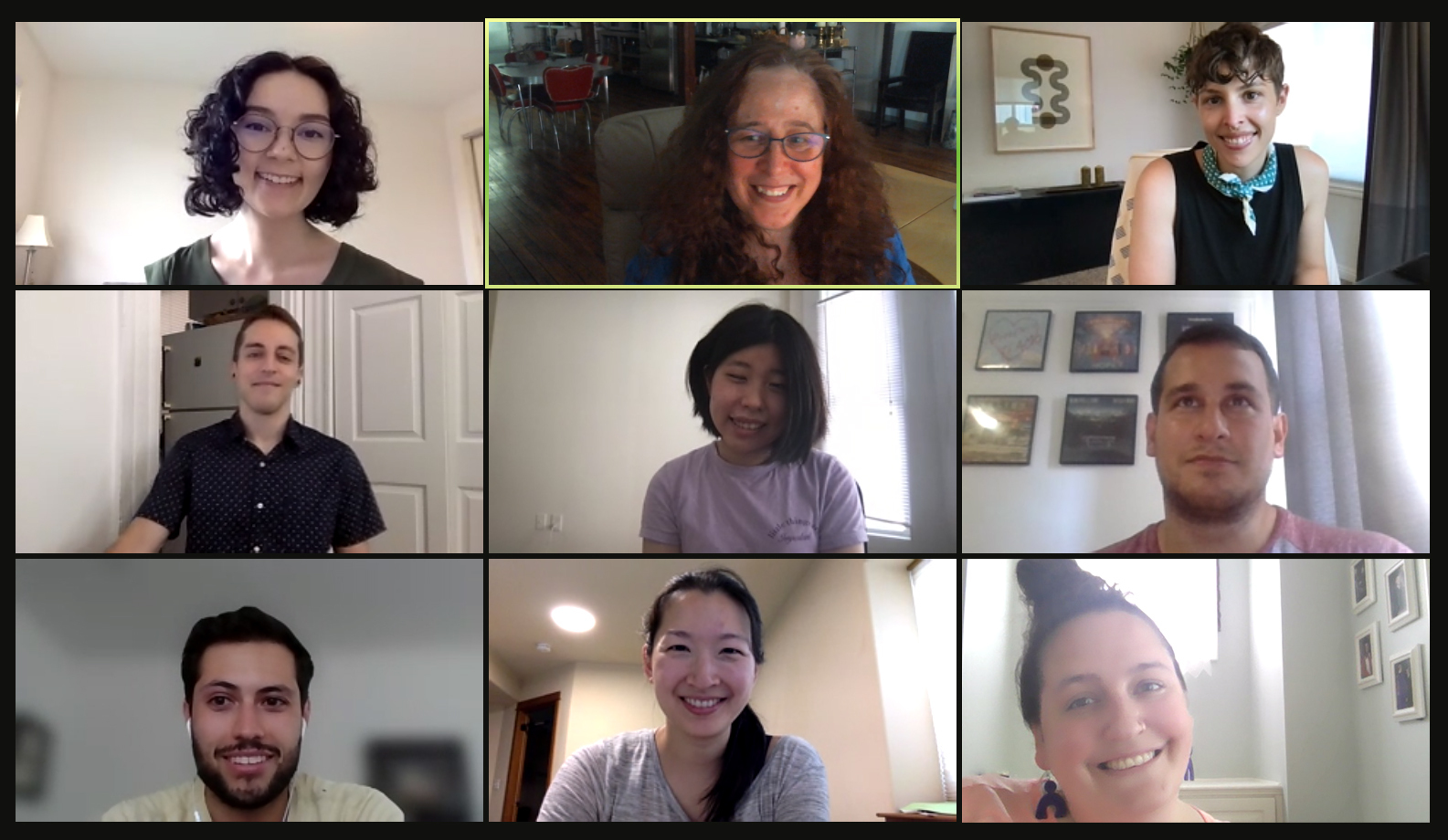
Throughout the project, we communicated with the client frequently. RLC team members contributed to our decision-making process by attending weekly client meetings and a design workshop. These opportunities allowed us to share progress, ask questions, and learn more about the client’s vision for the final design. Additionally, we communicated with RLC through our joint Slack channel throughout the week.
RLC was also fundamental in helping us recruit current and potential RLC volunteers to participate in our user research sessions. By watching and discussing research sessions together, we could communicate the value of Blink’s evidence-driven design approach.
Getting involved with the Blink community
During my time at Blink, I met and collaborated with Blinkers on and off the project team across the five Blink studios. I appreciated being able to experience Blink as a community — not just a workplace. Here are several ways I was able to connect with fellow Blinkers.
Meeting local coworkers
During my internship, studios started opening up again, and Blink officially became a hybrid workspace. As a result, I was able to go into the studio as often as I liked, which, for me, was two or three days a week. Sharing studio space with coworkers meant being able to connect and share what we were each working on.
I also had opportunities to get to know fellow Boston Blinkers in a less formal setting. From dart sessions and happy hours to a picnic trip in East Boston, Blink offered a lot of different ways to connect with Blinkers in the area.
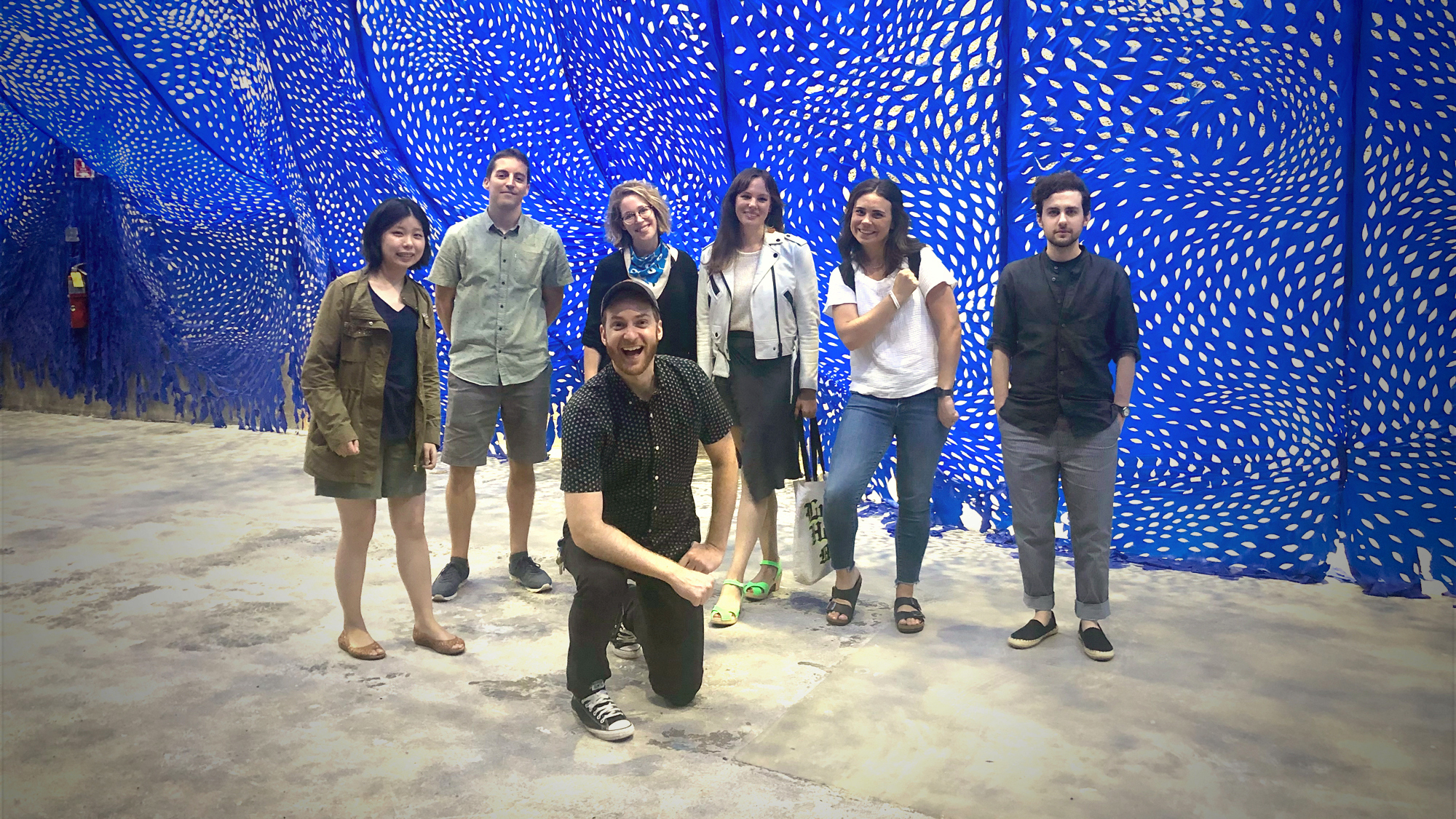
Getting to know the other interns
While our intern cohort was divided into different teams, we had opportunities to meet and get to know each other through formal programming, such as weekly intern meetups, workshops, and panel discussions with former interns. Furthermore, we had informal Zoom meetings where we could play games together online.
Interacting with people from other studios
I loved my internship at Blink because it offered plenty of opportunities to get involved with the larger Blink community. Although the Boston studio is one of the smaller studios and the only one on the East Coast, getting to know Blinkers in other studios was easy. One of the ways this was possible was through virtual practice area meet-ups, where practitioners from a wide range of practice areas came together to talk about skills and topics related to their fields, such as demoscene and how to present work.
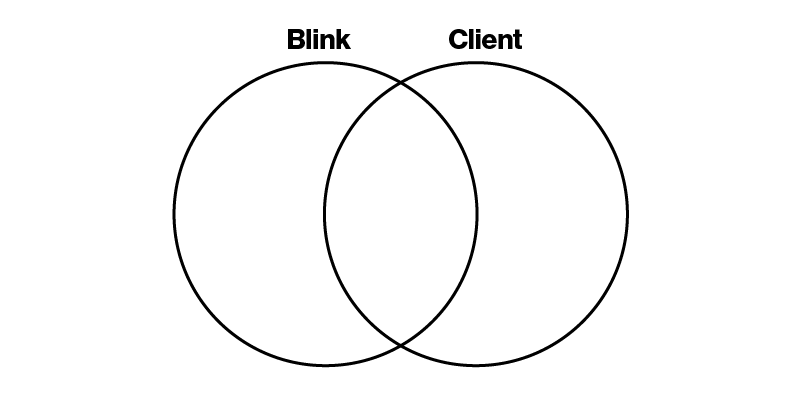
Collaboration is key
Whether you’re an intern or a full-time employee, reach out for support from others and seek out opportunities where your support is needed. The power of collaboration lies in being able to draw upon diverse perspectives, whether from your project teammates, other co-workers, or the client.
Visit our careers page to learn more about Blink summer internship opportunities.


